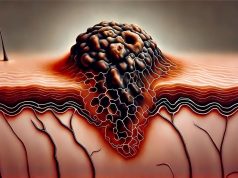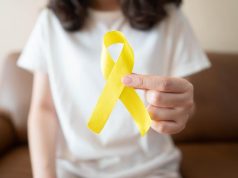Contributions quantified for subsequent neoplasms in childhood cancer survivors
By Elana Gotkine HealthDay Reporter
FRIDAY, June 13, 2025 (HealthDay News) — Cancer treatments and genetic predisposition contribute to the risk of subsequent neoplasms (SNs) among long-term childhood cancer survivors, according to a study published online in the June issue of The Lancet Oncology.
Achal Neupane, Ph.D., from St. Jude Children’s Research Hospital in Memphis, Tennessee, and colleagues analyzed data from the St. Jude Lifetime Cohort (SJLIFE; 4,401 participants) and the Childhood Cancer Survivor Study (CCSS; 7,943 participants) to estimate the relative contributions of radiotherapy and chemotherapy exposures, genetic predisposition, and lifestyle factors on the risk of SNs in survivors of childhood cancer.
The median follow-up was 24.2 and 28.0 years in SJLIFE and CCSS, respectively. The researchers found that cancer treatments and genetic risk jointly contributed to a substantial proportion of incident SN cases with attributable fractions varying from 30 to 92 percent for sarcoma and meningioma, respectively. Higher exposure levels of radiotherapy contributed most, especially in older versus younger (≥35 years versus <35 years) follow-up age periods (SJLIFE participants: proportion of SNs, 44.7 versus 40.0 percent, respectively). A notable proportion was accounted for by elevated genetic risk based on polygenic risk scores, ranging from 1 to 52 percent for meningioma and thyroid cancers, respectively, surpassing the contributions of chemotherapies. Negligible contributions were seen for lifestyle factors.
“Now that we have quantified the contributions of treatment, genetics, and lifestyle to the risk of secondary disease, we have a better understanding of where to focus efforts to prevent, detect, and treat these cancers, and hopefully extend these survivors’ lives,” coauthor Yadav Sapkota, Ph.D., also from St. Jude Children’s Research Hospital, said in a statement.
Editorial (subscription or payment may be required)
Copyright © 2025 HealthDay. All rights reserved.








